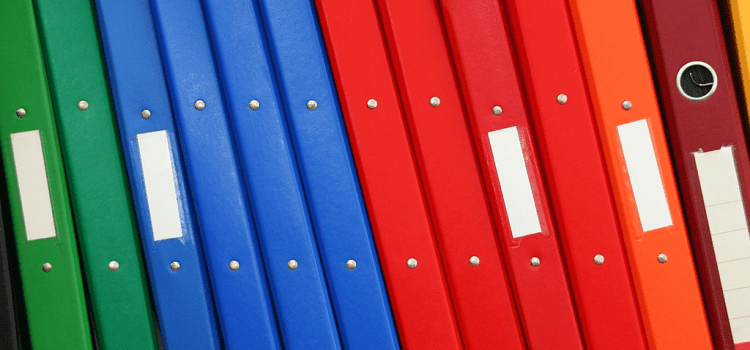Keeping business records is one of the top things freelancers wish they’d done when they first started out. It may seem like the type of thing only big shot companies have to do but it’s important for smaller enterprises, including freelancing.
So what do you really need to keep? Here’s a short list of records you should keep to maintain your freelance business.
Income and expenses
The top of the list of important records to keep – financial information including all income and expenses is essential to ensure you are tax compliant.
Keeping details of all your income means that you’ll be paying the right amount of tax when you come to submit. If you don’t you could be faced with a hefty fine.
If you don’t record business expenses you’re doing yourself a disservice as you’ll be able to deduct this amount from your profits and therefore pay less tax.
A handy way to do this is to use bookkeeping software that will keep records of all transactions and allow you to store receipts and invoices of expenses in one place.
Client details
Make sure you keep all contact information for your clients handy as well as some details about their company/needs. It helps to have a list to refer to so you don’t get confused between clients and can address their needs individually.
It also helps to keep a record of correspondence either in saved emails or notes from phone calls so that you can refer to them in the future should an issue arise.
Ex-client details
Just because a client has stopped working with you doesn’t mean you should wipe their name and number from your mind. There might still be opportunities in the future. One of the main reasons people drop freelancers is because it’s an easy way to save money when times are tough for the client.
They may very well be looking for a freelancer in the future. So keep their details and send a friendly message in 6 months’ time to see how they’re doing and whether they need your services again. It could be just the thing to jog their memory and start up the business relationship again.
Contracts
Agreeing to terms is no good if you don’t keep a record of it. You never know how the business relationship will go with a client so it’s always important to have agreements backed up on paper. Make sure you also give a copy to your clients so that they can store it for their own records too.
Pitch details
As a freelancer you’re no doubt pitching dozens of companies and individuals, offering your services. This can be hard to keep track of so we’d recommend that you keep records of everyone you contact, their response and any additional information you could use.
For example, if you keep pitching to the same company without realising it, you’ll just annoy the person you’re emailing and that won’t do either of you any good. Having records allows you to keep track of who you’ve contacted, who’s not interested, who might be interested in the future and so on.
How to store records
The best approach here is to have more than one method. If you’re leaving everything on Google Drive, make sure there’s a copy elsewhere. Similarly, if you’ve got filing cabinets full of paperwork, make sure they’re backed up digitally as well.
Ideally pick a cloud-based system so that you can access your data from elsewhere should you need to. Ask yourself – what would happen if there was a fire at your home office that destroyed all paperwork and hard drives? Cloud storage means you won’t miss out and lose all your important documents.
Do you have any other records you store? Have you ever been caught out before by not keeping records? Let us know your thoughts.







